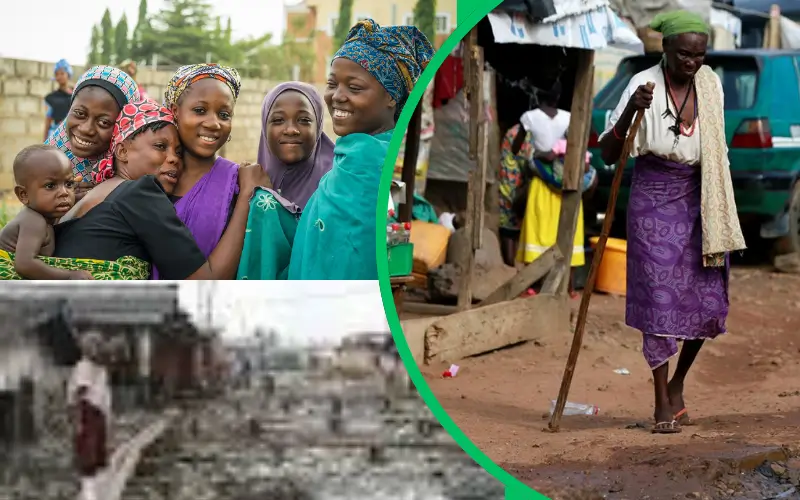GDP dey grow, but hunger still dey reign”—Inside Nigeria’s 42% Poverty Trap
Lagos, Nigeria: According to the International Monetary Fund (IMF) and World Bank, 42% of Nigerians still live below the poverty line as GDP rises—rural communities bearing the brunt
🔑 Key Takeaways:
42% of the population earn below $2.15/day despite economic growth
Rural poverty hits 75.5%, urban around 41%
IMF urges increased cash transfers, subsidy reforms, FX stability
World Bank warns poverty to rise without structural reforms
Local stories reveal hunger, broken homes, resilient hope

📉 The Story So Far…….
As reported by Global Upfront, Nigeria’s economy is Africa’s largest, yet about nine in ten rural Nigerians struggle daily for food and basic needs . According to the World Bank, 75.5% of rural dwellers live below the poverty line, compared to 41.3% in urban centres. Even with 3.6% projected growth, this isn’t touching per-capita poverty without deeper reforms
🎙️ Voices from the Streets
In a local video filmed by Concerned Citizens TV in Edo State, a mother, Mama Faith, tearfully said:
“No be only rice dey finish, my pikin dey cry for school fee.”
A source told Newstridez that despite N-Power and CCT programs, many beneficiaries remain unseen by formal systems. Cash transfers are limited by lack of banking access.
In a post on X (Twitter), @IgboChikere lamented:
“GDP na hot air if man no fit chop.”
💼 Experts on Nigeria Politics & Economics
Speaking at the IMF-WB Spring Meeting, IMF mission chief Axel Schimmelpfennig said the 3.4%–3.7% growth “remains insufficient in per capita terms” and urged stronger cash transfers and subsidy savings .The World Bank warned that without reforms, poverty may climb to 54% by 2024 . Where we dey today?
🏘️ Ground-Level Impact
Farmers in northern Nigeria face repeated inflation, insecurity, and climate shocks—crops fail, stores lie empty.
In rural Eastern communities, parents choose between school fees and food—some send children into early labour.
Urban poor still struggle with rent, transport—but at least have some form of income.
As at the time of filing this report, Nigeria’s headline GDP numbers mask a deeper economic crisis. According to IMF and World Bank priorities, urgent cash transfer scale-up, subsidy reforms, and rural investment are critical .Following the report, experts warn that without targeted reforms Nigeria risks undermining future gains. And speaking on next steps, policies like 3MTT and rural resilience programming must intensify.
Poverty in Nigeria remains a potent challenge despite GDP growth. IMF and World Bank urge urgent reform—scale up aid, revamp subsidies, invest rural. Deep structural change, not just fiscal headline, is needed to lift millions out of hardship.
Follow us on X (Twitter) @newstridez
Original Story by IMF & World Bank reports

Na only rice be Nigeria and garri be niger surviving language.. they should reduced the price abeg.